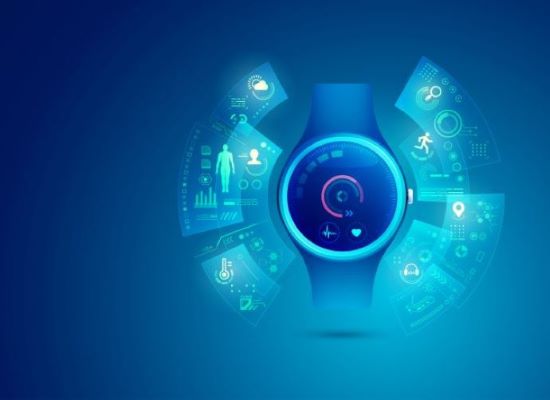UVA Health Researchers Use Wearables Data to Enhance Cancer Care
New research shows that using hormone data gathered by wearable devices can help clinicians determine cancer growth and provide personalized care.

Source: Getty Images
- Researchers at the University of Virginia Health (UVA Health) have found that wearable devices can be used to glean insights into patients’ cortisol levels, enabling clinicians to identify and provide personalized care to at-risk cancer patients.
The research is still in its early stages, but UVA Health researchers have discovered that pancreatic cancer patients with high cortisol levels resulting from disrupted sleep will experience faster tumor growth.
Scientific literature shows that there is a robust link between cancer patients’ health behaviors and their tumor progression. Hormones associated with these behaviors, such as cortisol and melatonin, have also been found to impact tumor growth.
The UVA researchers sought to create a conceptual framework that “integrates innovations from multiple disciplines—mobile sensing from behavioral health, machine learning from data science, tumor modeling from cancer biology—to advance the role of digital health in tumor modeling,” according to a study published in the journal Internet Interventions.
They used cortisol data from a previously reported observational study of ten pancreatic cancer patients. The prior study included patients with self-reported moderate insomnia symptoms and leveraged their mobile sensing data that was captured by a device worn on their wrist for five days.
The research team fed the cortisol data into a tumor microenvironment system (TMES), a system that models how tumor cells grow. They found that compared to normal cortisol levels, there is a significant increase in pancreatic tumor cell growth when cancer patient cortisol data is cycled through the TMES.
“Taken together, findings from these studies indicate that continuous monitoring of people's hormone levels through mobile sensing may improve experimentation in the TMES, by informing how hormones should be introduced,” the researchers wrote.
This experimentation adds to researchers’ understanding of how patient health behaviors impact hormones and how they, in turn, affect their cancer.
“By bringing together different scientific disciplines, we can more effectively model cancer in the laboratory and then possibly learn how a patient’s cancer will respond to specific therapies and how helping manage a patient’s sleep or stress levels can impact that therapy,” said co-principal investigator Dan Gioeli, PhD, of UVA’s Department of Microbiology, Immunology and Cancer Biology, in the press release.
Another member of the research team, Philip I. Chow, PhD, of the UVA School of Medicine’s Department of Psychiatry and Neurobehavioral Sciences and UVA’s Center for Behavioral Health and Technology, noted that this research could ultimately help clinicians leverage wearables data to create personalized treatment plans for cancer care.
“Our vision is that this could one day lead to individualized cancer treatment that is tailored to the behavioral health profile of the individual patient,” said Chow in a press release. “We know that patients are diverse in terms of their mental and physical health. Things like insomnia and distress could be important factors in how quickly a patient’s tumor grows and how resistant it is to cancer treatments. We’re trying to advance a more precise model of care that takes into account a patient’s health profile when making decisions about their cancer treatment in order to improve outcomes. It’s a bit outside-the-box thinking, and to our knowledge nobody else is doing it.”
As wearables data use in clinical care grows, patients are expressing their support.
In a recent survey of 876 healthcare consumers, 91 percent said they want to share data from their personal wearable devices with physicians. Software research firm Software Advice conducted the survey in September 2023.
It further shows that 82 percent of respondents said they want to share wearable device data with their physician to take a more active role in their health, 77 percent said to improve their health outcomes, and 58 percent said to get a more holistic view of their health.
Also, 59 percent of survey respondents said that physicians including wearable device data into treatment plans would encourage them to make healthier choices, like exercising more often.
